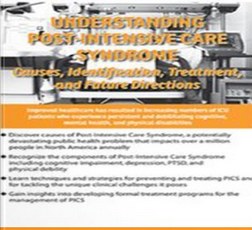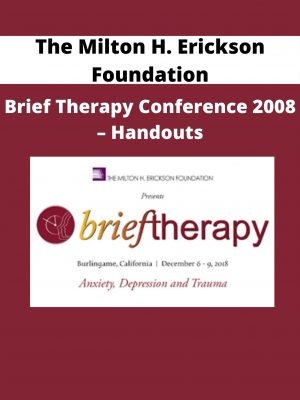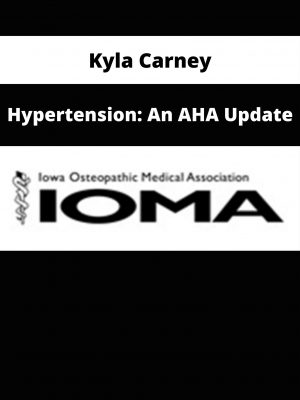James Jackson – Understanding Post-Intensive Care Syndrome
$219 Original price was: $219.$62Current price is: $62.
Shopping Instructions:
- DISCOUNT 15% : SHOP15
- Product Delivery: Within 1 – 12 hours after purchase.
Available for Pre-Order. This product will be available within a few days.
James Jackson – Understanding Post-Intensive Care Syndrome
EPIDEMIOLGY OF CRITICAL ILLNESS IN NORTH AMERICA AND THE WORLD
- What is critical illness/intensive care?
- Who is affected by critical illness?
- Why are the unique needs of ICU survivors of critical illness so often ignored?
- How frequently are rehabilitation professionals involved in the clinical care of critically ill patients?
INTRODUCTION TO COGNITIVE AND MENTAL HEALTH PROBLEMS AFTER INTENSIVE CARE
- Brain injuries/dementia
- Depressions
- Anxiety
- PTSD
- Post-Intensive Care Syndrome (PICS)
- Acute, Post-Acute, and Long Term Symptoms
POTENTIAL RISK FACTOR/CAUSES OF PICS
- Medical illness
- Sepsis
- Acute respiratory distress syndrome (ARDS)
- Pneumonia
- Medical treatment
- Hypoxia due to mechanical ventilation
- Excessive sedation
- Delirium
BEST PRACTICES IN THE PREVENTION AND TREATMENT OF PICS
- Inpatient prevention and management strategies-an interdisciplinary approach
- Assessment
- Early identification
- Education- setting expectations
- Post-discharge treatment strategies
- Persisting issues after leaving the ICU
- Muscle weakness/problems with balance
- Problems with thinking and memory
- Severe anxiety
- Depression
- Post-acute care facility placement
- Rehabilitation professional’s role
- Goal of regaining functional independence
- Reduction of readmission rates
- PICS and families
- How they can help
- Education
- Reorient patients
- Items from home
- ICU diary
- Impact
- Anxiety/PTSD
- Depression
- Complicated grief
- Persisting issues after leaving the ICU
- New research into PICS
- Implications for treatment of PICS
- Role of professionals from diverse clinical disciplines in addressing PICS
- “Untapped” opportunities to get involved
- Developing a “unit” culture responsive to PICS
- Creating a follow-up clinic
- Starting a PICS support group
BRINGING IT ALL TOGETHER
- Case study of the Treatment of PICS
- Examples across clinical disciplines
- From admissions to after discharge
HOT TOPICS AND FUTURE DIRECTIONS RELATED TO PICS
Would you like to receive James Jackson – Understanding Post-Intensive Care Syndrome ?
Description:
Over 5 million individuals are treated in the ICU annually in North America. While 20% of these individuals will die prior to discharge, those who survive are rarely free of difficulties. Many ICU survivors return home only to find that their lives are now in dramatic contrast with their pre-treatment existences.
Evidence from dozens of investigations suggests that up to half of ICU survivors experience complications, including cognitive impairment, depression, PTSD, and physical debility. These problems collectively form a condition known as Post-Intensive Care Syndrome or PICS and they cause significant difficulties in areas such as daily functioning, functioning, and overall quality of life.
While PICS impacts literally millions of individuals each year, few professionals are aware of it, and even fewer are familiar with effective treatments for patients who suffer with this common, yet disabling, condition. Using current research and proven clinical examples, this recording will teach clinicians across the disciplines to identify PICS and to utilize evidence-based strategies in its treatment.
In particular, clinicians will learn to individually tailor common clinical approaches to the needs of PICS patients and their families, both during and after hospitalization.
Related products
HEALTH & MEDICAL
HEALTH & MEDICAL
Dr. J.E. Williams & Kevin Gianni – How to Read Your Blood Tests
HEALTH & MEDICAL
Dr Heidi M Crocker – Yoga Alignment | Speaker: Heidi Crocker EdD, DC
HEALTH & MEDICAL
HEALTH & MEDICAL
HEALTH & MEDICAL
HEALTH & MEDICAL












